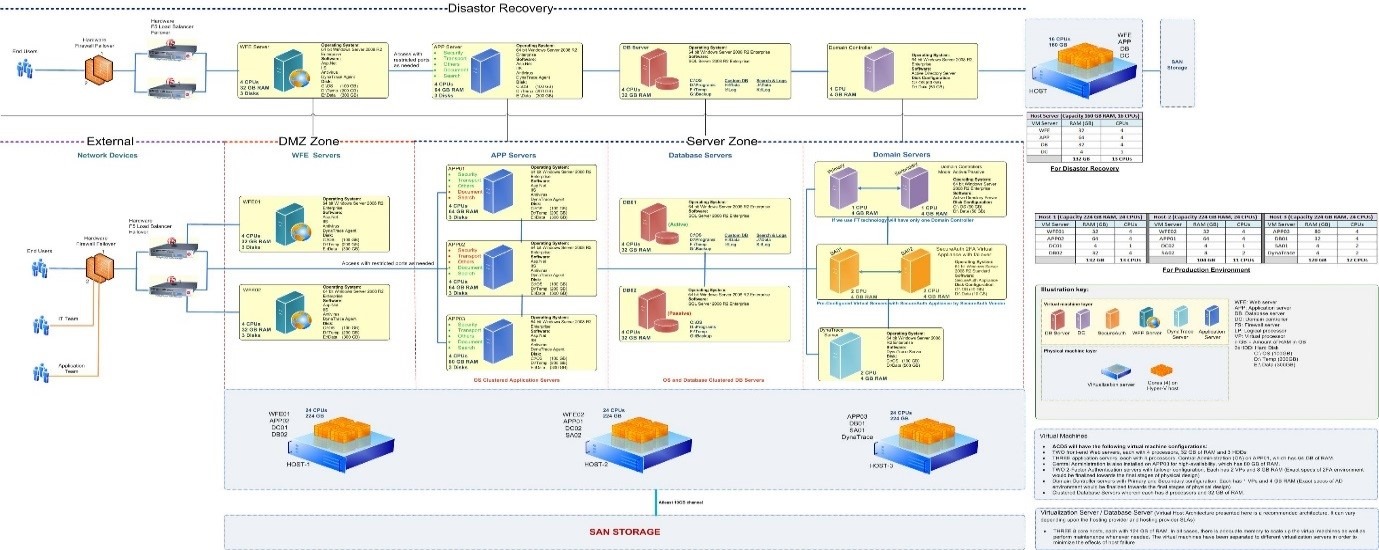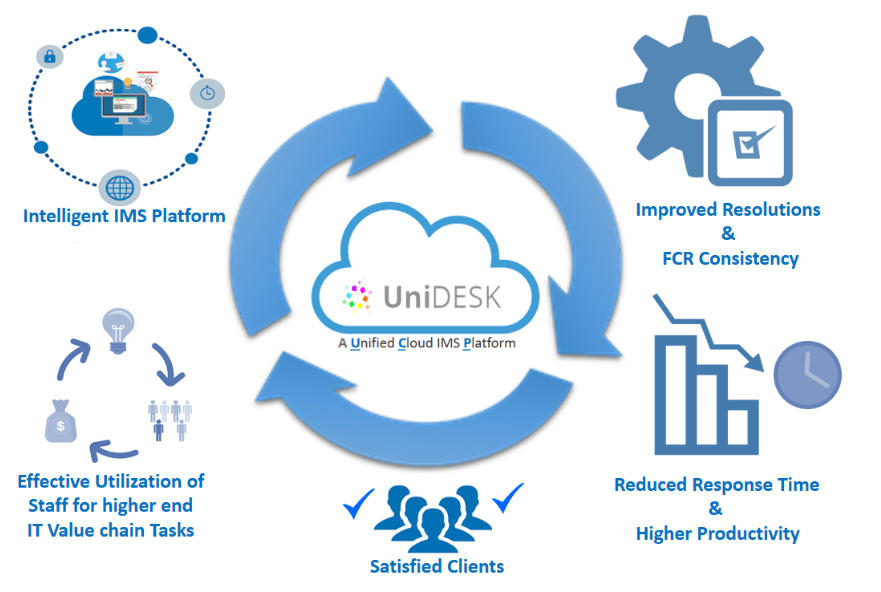
IT service support management (ITSSM) tools offer a tighter integration of functions that correlates with the activities of the broader IT support organization. ITSSM tools leverage a business view of IT services, enabling the IT support organization to quickly resolve or escalate issues and problems, improve root cause isolation, and provide higher levels of business user satisfaction. Using this business view, IT support organizations manage incidents, problems and service requests throughout their life cycles at a more efficient and effective rate. ITSSM tools also enable organizations to automate the workflow of process frameworks (such as ITIL) specific to IT service support (such as incident, problem, change, release governance and request management).
ITSM Management
• Organization will be saving more than 30 per cent of the dollar value that they spend on different software licenses and mess that is created when either one or multiple systems are not supported by the vendor.
• Training time spent is reduced significantly, as a single system will be supporting all the activities throughout the organization.
• Organization EIDM system will help the individual get access to their own information from a single user system.
• Billing and accounting department will significantly benefit by EIDM system, as their process billing becomes more accurate because not a single procedure goes un-documented. At the end generating more revenues for organization.

Enterprise Identity and Data Management

Enterprise Identity and Data Management (EIDM) is a product or system that could be utilized for organizations with multiple systems for various departments. By integrating EIDM with unified communication and collaboration services; it can collaborate all individual information into single database; using a unified Internet application for all the departments. This system protects sensitive information of the individual, abiding by HIPAA laws. Unauthorized access can lead to federal law violation of invasion of patient privacy. These application services engage the user(s) providing automatic notifications over the users’ channel of choice and enabling them to respond through any channel so that the process can continue with minimal interruption. GSS InfoTech’s solution would lead to the marriage of collaboration medium and channels with IT Service Management Tools.
Unified Cloud Platform
GSS-UCP (Unified Cloud Platform) will be offered as a high efficient, ITIL compliant automated IMS platform. GSS-UCP minimizes the latency caused due to human intervention for standard IMS issues and ensures consistent adherence to SLAs. By integrating GSS-UCP with historical incidents, CI information, the relevant KB articles, and with SIEM tools, and by using Bigdata & ML, large amount of data get effectively interpreted by the intelligent Unified Platform and either the relevant automation scripts can be triggered, or appropriate resolutions suggested.
• Options for deployment on the cloud or on-premise. Available as Software-as-a-Service (SaaS), the solution offers all the advantages of cloud implementation including the flexible consumption of communication and collaboration services to accelerate a business process flow, on-demand scalability and rapid, cost-effective deployment that eliminates expenditure for hardware or additional IT resources.

UCP Software Interfaces
Big Data Analysis tools are designed to collect, integrate and analyze large volumes of structured & unstructured data such as text (email to tickets, incidents, resolutions, security logs & sensor logs) in near real time. Integrating Big Data Analytics tool(s) as a part of the Intelligent Unified Cloud Platform for next generation Infrastructure Management Services, powers the system to collect and analyze structured, semi-structured & unstructured data from listed sources, enabling the system to be highly effective in processing various forms of data with minimal human intervention.
Machine learning using the data patterns helps expediate the decision-making process on set of actions to be taken within few seconds. Using deep learning techniques, researches created a machine learning module that employs static analysis & continuously matures the decision-making process & triggering most appropriate actions. The emergence of big data analytics, Machine Learning and Cloud-based computing options that have made building of such platforms & tools affordable, and have helped to drive deep learning solutions into the mainstream.
UCP comes with Incident reporting inbuilt, where the Incident & log analysis is powered by data analytics supported by big data tools, and Machine Learning is leveraged for recommending standardized resolutions & taking actions, thereby enabling faster & consistent Service Management in-line with ITIL with reduced human intervention resulting in generating responses within SLAs, increased FCR% over time, thereby improving the Customer Satisfaction & utilizing human intelligence / staff for higher end IT value chain tasks.
From a reporting perspective as well, the dash boards generated from the underlying high-quality data will give a near real time perspective about the Infrastructure Management Services offered through Intelligent Unified Cloud Platform.
GSS InfoTech has envisaged a robust UCP solution, which extracts latency in ITIL based IMS processes. The solution centers around by expanding the range of channels that will be integrated with automated processes and providing bi-directional notifications that eliminate gaps in execution whenever human decisions are required. GSS would like to show case this solution first to its existing clients by building a prototype, which helps them greatly in saving time and money, spent on Infrastructure Management Process.
The solution delivers all the key capabilities required for GSS-UCP including:
• ITIL compliant Intelligent IMS Platform
• Newer technologies and algorithms getting incorporated for enhanced analysis & Machine Learning
• Rich presence that offers an enhanced form of presence using skills-based routing, service preferences, notification types, and other relevant criteria to identify & resolve issues, and send updates.
